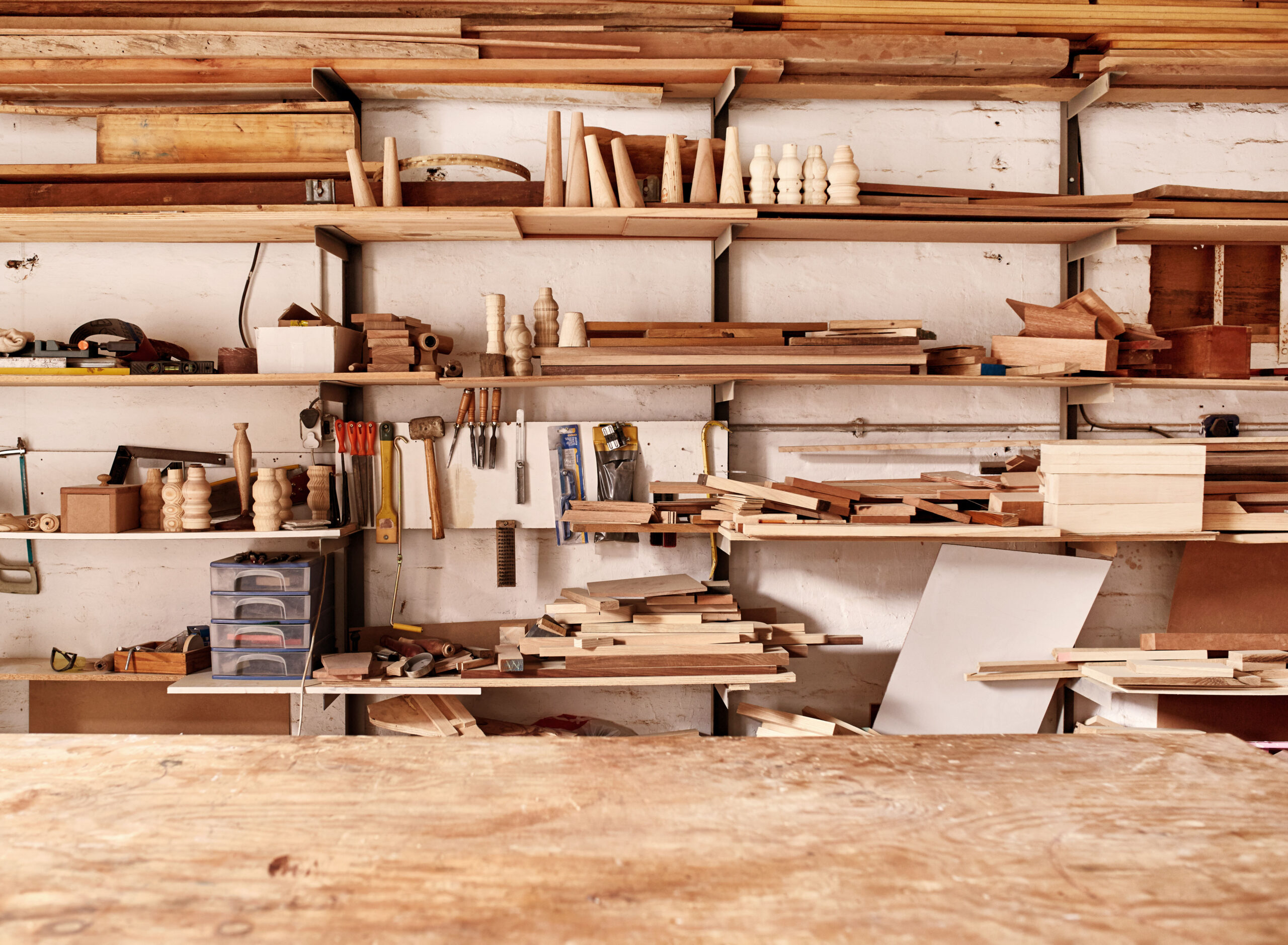Glue can be used to accomplish many things, from arts and crafts, home repairs, to a range of hodgepodge tasks. Elmer’s Glue is one of the most well-known brands of glue, but what does it actually work on and can it bond all types of materials?
The original Elmer’s Glue formula works best on porous materials such as paper, cardboard, and wood. It can also bond other soft materials, including fabric or felt, for a temporary fix. However, Elmer’s Glue isn’t strong enough for harder materials and wouldn’t be suitable for glass and plastic.
In this article, I’ll be covering all the materials that Elmer’s Glue can be used to bond, the tasks it’s best suited to, and what it cannot be used for.
What Is Elmer’s Glue and What’s It Used For?
The Elmer’s brand has many types of glue products on the market, all good for different tasks, but unless specified, I’ll mostly be referring to Elmer’s All Multipurpose White Glue.
Elmer’s All Multipurpose White Glue is a polyvinyl acetate adhesive (PVA), commonly used for school projects and paper crafts. It’s composed of about 50% water. When applied, the water evaporates and the remaining PVA compound hardens into plastic-like strands. It is 100% water soluble and washable.
Elmer’s isn’t the only PVA glue out there, but it is certainly the most well-known thanks to its prevalent use in schools for the past decades. It’s removability makes it ideal for messy projects and young children, as it can easily be washed from the skin.
However, its popularity doesn’t necessarily mean it’s the best adhesive for all bonding projects.
Let’s take a look at which materials Elmer’s Glue can efficiently work on.
Does Elmer’s Glue Work on Wood?
Whether you’ve got a broken dresser drawer or a cracked floorboard, you might be wondering if it’s safe to grab Elmer’s Glue for a quick fix on your wooden surfaces.
Elmer’s Glue works on wood and can create a very fast and strong bond. The glue adheres to wood’s porous surface and can effectively seal most minor damages, such as splinters or cracks. However, if you’re repairing larger, heavier pieces of wood, you’ll want to opt for a wood-specific glue instead.
Elmer’s Carpenter Wood Glue is a better alternative glue for bulkier wood projects, such as repairing furniture, resealing floorboards, or building outdoor structures. It can offer more support to heavier wood and ensures a long-lasting bond.
If you decide to use Elmer’s All Multipurpose White Glue on a wood project, keep in mind that it’s a water-soluble glue, so it won’t last on wood that’s exposed to a lot of moisture. To remove wood bonded with Elmer’s Glue, you can simply wash it away with water.
For the best effect, I’d recommend only using plain Elmer’s Glue for light craft woods, like balsa wood, and use the Carpenter’s Wood Glue formula for heavier woods, because it will provide a more solid and long-lasting bond.
Does Elmer’s Glue Work on Fabric?
Consider the needs of your fabric-related project when choosing a proper glue. Elmer’s generally is a good all-purpose glue if you have nothing else. Be aware, however, that when gluing fabric to cardboard, the cardboard tends to absorb some of the water from the glue and becomes soggy, which can ruin the outcome of certain crafts.
Elmer’s does work on fabric, but it isn’t as good as fabric-specific glues because it can harden the material. Fabric glues offer a more permanent solution, and allow you to wash the fabric. If you apply Elmer’s Glue and wash the material, you can expect the bond to deteriorate from the moisture.
Elmer’s Glue can be used for short-term fabric fixes, but if you’re eager to find a more reliable, long-term solution, I’d recommend a fabric glue, like Tear Mender, to provide better durability.
Does Elmer’s Glue Work on Felt?
Plain Elmer’s Glue will work on felt materials, though it has a tendency to harden the felt, which can be less than ideal, considering felt is probably being used for its soft texture. A more practical and permanent choice for felt would be a liquid stitch product like Tear Mender.
Elmer’s Craftbond Tacky Glue is an Elmer’s variant that also works great for felt. It bonds faster than the plain white glue and dries clear, with an easy-to-apply no-run formula. As a bonus, this glue is available in a variety of shades if you desire a bit of extra color in your project.
Does Elmer’s Glue Work on Glass?
Regular Elmer’s Glue doesn’t bond glass together very well because it isn’t strong enough to hold the dense materials in place. Many glass surfaces also come in contact with moisture, which can deteriorate the glue quickly.
Even though you won’t find success using Elmer’s Glue for glass repairs, there are other suitable glues that can provide better support and bonding strength, such as Loctite Glass Glue. Elmer’s China and Glass Cement is another great choice if you’re looking for a product in the Elmer’s family of products.
While plain Elmer’s Glue isn’t very good for bonding glass together, it can be combined with food dye and ‘painted’ over glass to provide what’s known as a ‘seaglass’ effect that can be very aesthetically pleasing for various arts and crafts.
Elmer’s Glue Isn’t Strong Enough to Bond Ceramic
Similarly to glass, Elmer’s Glue also isn’t good for ceramic repairs. However, the best alternative glue is the Elmer’s China and Glass Cement mentioned earlier is a great option. Other adhesive alternatives include J-B Weld and Gorilla Glue, which are known to work well for ceramic repair purposes.
For long-lasting ceramic repairs, regular Elmer’s is not the way to go, especially since many household ceramics are used to hold liquids, like tea and coffee. Instead, I’d suggest a more sturdy adhesive like those mentioned above.
Does Elmer’s Glue Work on Plastic?
To repair plastic toys, gadgets, and other miscellaneous household items, you’ll want to avoid using Elmer’s Glue.
Elmer’s Glue doesn’t work on plastics because it doesn’t have the strength or capacity to hold plastic objects together. It can also leave behind messy residue on the plastic’s surface. For plastic repairs, it’s recommended to use a heavy-duty superglue instead.
Does Elmer’s Glue Work on Metal?
Regular Elmer’s Glue isn’t suitable for bonding metal, especially in a permanent capacity. Since metal isn’t a porous or soft material, Elmer’s Glue likely won’t harden enough to bond metal surfaces together.
However, Elmer’s Glue-All reportedly works well for metal and has the bonus of being sandable for later painting. J-B Weld and other epoxies are the best agents to use for metal, second only to actually making a weld.
If it’s a heavy-duty metal project, welding is absolutely the way to go, as it creates the strongest possible bond between two or more pieces of metal. This isn’t always financially feasible, though, which is where the J-B Weld and epoxies come in handy.
Elmer’s Glue Works Best on Simple Crafts
Elmer’s All Multipurpose White Glue works best with porous materials such as paper, cardboard, and some woods like balsa wood. It can be useful to some degree for harder materials, but generally, there are better products available to bond materials like plastic, glass, and metals.
One of the handiest features of Elmer’s Glue is that it’s washable with just water, but this is also a huge weakness; anything that you expect to get wet shouldn’t be bonded with Elmer’s Glue, as it will simply wash away and leave an unbonded mess.
It’s washability, however, is what makes it a preferred adhesive for children’s projects and paper crafts – children tend to get everything they play with on just about every nearby surface, so an easily washable glue is a huge plus if you have or regularly interact with children in any capacity.
Final Thoughts
Elmer’s Glue is universally known and loved for arts and crafts, but most other types of materials would be better served with glue specifically for the task. At best, Elmer’s can hold paper, cardboard, and soft wood together for a short period of time.

